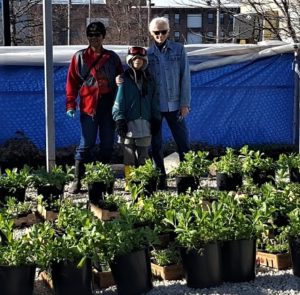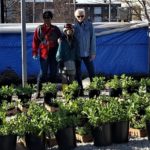Gardeners’ Conference Registration Now Open!

 You are invited to join your fellow community gardeners from across the city at our annual education and networking event, to be held on Saturday, March 30. Our theme this year is Gardening and Adapting to a Changing Climate. This year’s conference will convene in the bright and inviting Breakthrough FamilyPlex, located at 3219 W. Carroll Avenue in the Garfield Park neighborhood.
You are invited to join your fellow community gardeners from across the city at our annual education and networking event, to be held on Saturday, March 30. Our theme this year is Gardening and Adapting to a Changing Climate. This year’s conference will convene in the bright and inviting Breakthrough FamilyPlex, located at 3219 W. Carroll Avenue in the Garfield Park neighborhood.
Registration is now open! Details on the workshops and other conference details, including links to registration are HERE.
Community gardens have multiplied since most of us were young and they are thriving, but they are seriously threatened by a changing climate. Victory Gardens were gardens planted both at private residences and on public land during World War I and World War II to reduce the pressure on the public food supply brought on by the war effort. Today, we have a new challenge with just as much urgency: to reduce pressure on our food supply brought on by a changing climate. You will no doubt be seeing community gardens referred to as Climate Victory Gardens. The resurgence of these gardens during two world wars brought both small and large community gardens to cities like Chicago. Community gardens have brought immigrant and low-income residents together, taught young people to find nature closer to home, and many more adults have been introduced to healthy eating, sustainable food sources, and harvesting skills. Community gardens are pretty much synonymous with victory!
Our presenters in their workshops this year will share their knowledge and experience in practices that improve, conserve, and build up soil (and soil carbon). When we purchase less food that has traveled across the country and when we compost more food scraps keeping it out of landfills, we increase the water holding capacity of our soil. This decreases flooding and runoff, and most importantly, rebuilds our soil health reinvigorating its carbon-sequestering potential. Other workshop presenters will help you become more resilient to a changing climate by learning to preserve the long-term health and productivity of your garden, and your community of gardeners.
